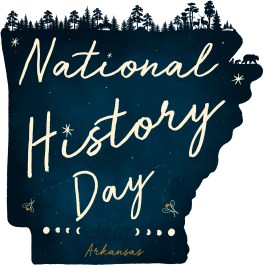Theme and Topic
EXPLORING THE THEME

2024 Theme: “Frontiers in History: People, Places, Ideas”
Each year, National History Day selects a theme to guide student research. The theme is intentionally broad, allowing students to choose topics from a variety of times and places from ancient history to the 20th century, and from local to global history topics.
- Theme Book for 2023-2024
- Theme Narrative for 2022-23
- Theme introduction video (10 min)
- Frontiers fillable Graphic Organizer Graphic Organizer
Finding a Topic: Narrowing Down an Area of Interest
- What time period would you like to learn more about?
- Is there an event in history you want to learn more about?
- Is there a historic person whose life you want to explore?
- Is there something you are passionate about?
A History Day topic is all about researching a specific event or story or person that you can tie to the annual History Day theme. An effective History Day project often explores a small story — an event, an invention, an individual’s contributions— in a way that helps the audience understand a larger history.
Where to look for inspiration?
Documentaries & Podcasts
Magazines
Graphic Novels & Books
Using the Internet for Research
It’s easy to Google stuff. Use that quick internet search to learn the basics of your topic. Wikipedia, Ducksters, Brainpop, and similar websites offer quick ways to learn when an event occurred and key people who were involved.
The Internet has redefined the way you start your research. It provides immediate access to an endless number of resources. But there are limitations and challenges to having so many possibilities at your fingertips. Avoid using the open web as your only research source. If your library resources are limited and you must rely heavily on online resources, be sure to access eBooks, subscription databases, and high-quality resources available through the Arkansas Traveler database. The general web searches should only be one part of a well-balanced research process. Also, remember that anyone can put something on the Internet; You want to make sure you are using reliable sources such as libraries, museums, archives, and oral history collections.
Lastly, libraries, museums, and archives worked hard over the past few years to get more of their collections digitized and online for everyone to access. But even after years of work, a small fraction of their collections are available online. Some of the most significant information related to your research topic may not be available on the Internet.
